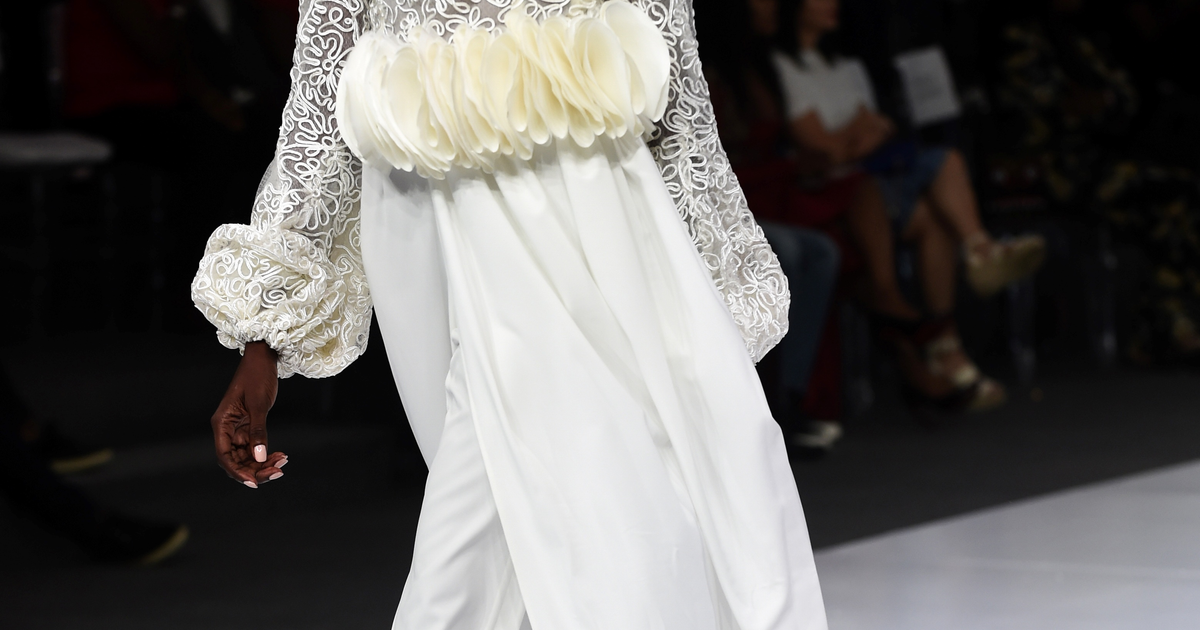
“Fashion and TV have a very symbiotic relationship with storylines. But away from the storyline, I always look out for the looks,” celebrity stylist Oluwatosin Ogundadegbe, popularly known as ‘The Style Infidel’, tells Quartz.
Globally, the fashion industry has a labor force of 60 million, according to to the International Labour Organization (ILO) with the market being highly competitive and business owners seeking ways to be at the top of the demand food chain. Tapping into the influential power of the Nigerian TV and Film industry—a market which is estimated to grow to $903 million in 2023—opens a wider market for fashion brands with global streaming platforms like Netflix, Amazon, Showmax, NdaniTv, Accelerate TV, Iroko TV, and others.
Stylists and costume designers are an integral part of any successful film. When they do not get the job done well, there’s a disconnect between the characters on screen and the role they’re playing. However, beyond this entertainment, there’s the need to influence consumer behavior in terms of purchases. Hence, the push for product placement.
There’s been a meteoric growth of both industries, with TV & film and fashion professionals working collaboratively. “I think we’ve seen an evolution in terms of costumes aligning with themes of film and TV production,” says Pinaman Owusu-Banahene, founder of Adjoaa, a fashion e-commerce platform with a focus on sustainable African fashion. “I see that there’s been a huge evolution in bringing fashion into TV and film, and vice versa,” she adds.
Nigerian stylists and designers are endorsing collaborations with TV and film
“I remember when I dressed Adesua [Etomi] in a dress that was going for a particular amount at that point,” Ogundadegbe says. “The minute Adesua wore it and it became a sensation, the price increased to four times the initial selling price.”
Nigerian movies like Blood Sisters, The Smart Money Women, King of Boys: The Return of Oba, all currently streaming on Netflix, have caused a lot of buzz not only for high quality production and stellar acting, but for high fashion and costuming. “For instance with Smart Money Woman where a particular person wore a particular piece, the piece sold out,” Ogundadegbe says. “So one way or another, there’s always a space for collaboration. [However], questions like ‘how does it pay both parties?’ have to be asked.”
Adeyemi Olowu, the founder and creative director for HRH Luxury, a Lagos-based fashion brand who worked on some of the designs for Netflix’s Blood Sisters mini-series, says “People know me more for my works with Blood Sisters, and reference it when they reach out for work. For my brand, it’s been a success.”
Besides the kind of visibility designers are granted for being on major TV platforms, for some, there’s the increase in revenue. Through this, HRH Luxury has increased its profit margin, even beyond its domestic clientele. “It’s not just about Africa for us, right now. People now call from as far as Canada and the UK and the US,” Olowu says.
E-commerce platforms and retailers say there’s a potential market
E-commerce plays a vital role in TV and film’s intersection with fashion. With the globalization of the Nigerian fashion industry, and watching how TV and film from Nigeria are gaining global support from platforms like Netflix, Amazon, and Showmax, just to name a few, there’s an increased demand from those in the West, with one of the best ways to secure demand being e-commerce.
Aderonke ‘Ade’ Ajose-Adeyemi, the founder of Losode, a digital marketplace that connects lovers of African fashion to brands in sub-Saharan Africa, tells Quartz, “From a business perspective, the synergy and partnership [between these two industries] makes sense.” Referencing Losode’s work with NACK Apparels, a casual wear brand that’s been a longtime sponsor for the Nigerian TV show, Big Brother Naija. “We’re always on the lookout for exciting brands with a potential market, and although we do not focus 100% on TV and film, there’s an influence there.”
This is why considering piquing a consumer’s interest and recognition when working on the costumes for films is important. “It’s a huge cultural export especially because Nollywood is the biggest movie industry after Hollywood,” Owusu-Banahene says. “Nigerians have a lot of pride in selling themselves, and that sort of translates to consumerism. It’s why you see a key personality wear something [on screen], and can shift the conversation from not just purchasing, but people desiring to own it.”
Increasing viewer interest in Nigerian fashion
Nigerian fashion and costume designers have one important question in mind when it comes to working with TV shows or films: Does the visibility translate into sales? “Validation is good. It’s good for brand positioning and recognition, but how are you turning it into money?” Ogundadegbe says.
Eze Emmanuel Chukwudi is a brand consultant and personal shopper who spends most of his free time styling and working on his fashion store in Jumia, where he sells male accessories. He owns the Stylefidence image grooming brand, and speaks about how TV and film have influenced his buying. “Once I see somebody of great style in a movie, it naturally catches my attention. Covert advertising is also a great way to pique consumer interest. It’s when the cast [members] wear clothes, and subtly share to other cast [members] who styled them and what they’re wearing whilst the movie is going on.”
For Owusu-Banahene, another great way to push consumer interest in the designs is giving credits to the costumer/stylists, or taking viewers behind the scenes after the film is over. “Crediting stylists is a good way to influence buying. There can even be promotional campaigns that lead to the release of the film,” she says.
"TV" - Google News
August 24, 2022 at 04:30PM
https://ift.tt/JaReycD
How Nigeria's TV and film industry is influencing fashion - Quartz
"TV" - Google News
https://ift.tt/OyqcS7Q
Bagikan Berita Ini














0 Response to "How Nigeria's TV and film industry is influencing fashion - Quartz"
Post a Comment